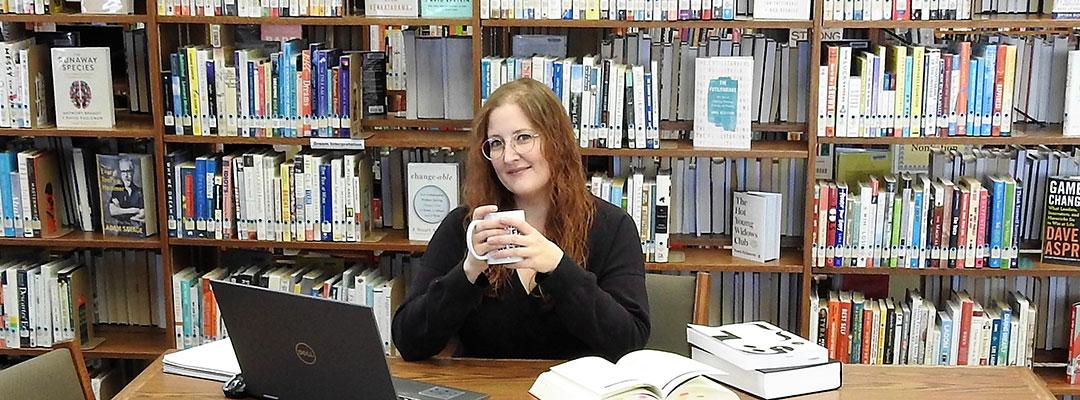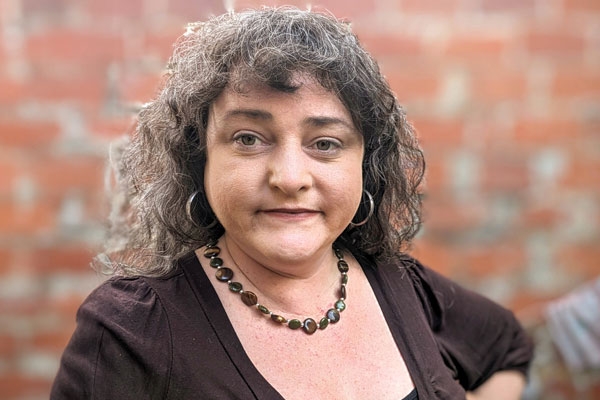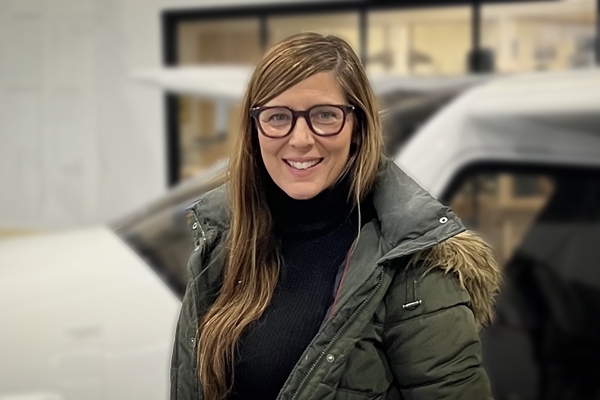Coming from a rural area and a low-income, single-parent home, I believed my career options were limited. But when I realized my passion for language was the basis of an editing career, my life took a momentous turn.
You could say Tracy Locken partially owes her career direction toward freelance editing to a junior high school choir—and her tween daughter.
“My daughter is 12, and she is a writer,” Tracy effuses. “She wrote her first book at age 10 (about 37,000 words), and since age 9, she has written over 143,000 words and has won awards for her writing. After she wrote her second novella, I started hunting for direction on having her work published.
“That’s when I discovered the importance of hiring a good editor, and my eyes opened to the possibility of an editing career,” she says. “I knew that I enjoyed reading her work and helping her hone her skill, but before this, I hadn’t realized that editing might be a feasible career for me.”
Now on to finding inspiration in a junior high school choir.
Finding Her Unique Voice
Tracy grew up on a farm outside Beach, N.D. (population: 1,019), and later moved with her mother and sister to Dickinson, N.D. (population: 17,787). After high school graduation, she settled in Gillette, Wyo. (population: 29,947) and worked two jobs: as an auditor for a beverage distributor and as a piano accompanist to a junior high school choir.
“A choir operates as a single unit,” Tracy describes. “Voices in a choir should blend together; one voice should not stand out from the others. It was so interesting to be a part of a team trying to blend a group of willful teenagers. I noticed that each of these kids had not only a unique voice, but also a unique style.
“That realization was a catalyst for breaking out of my own box. I had participated in choirs and musical groups for years, blending my voice with others, but I finally realized that I, too, had a unique style of my own. And so I discovered my own voice and began writing music.”
Moving beyond musical notes, Tracy is finding a voice and a style to words on a page, thanks to our editing program.
From Inspiration to Action
Like her own personal discovery, Tracy’s new career in editing will focus on helping her writing and business clients discover their unique voices and making their work “sing,” while also blending together their ideas into one cohesive “choir.”
But first, she wanted formal training to bring her credibility in this new career direction. And, because of her remote location, Tracy spent time researching the educational options that would meet her needs.
“I did a lot of research before I selected the Professional Sequence in Editing,” she says. “I needed to be able to complete the program online with a flexible schedule, and I was looking for a reputable, respected program. I combed through program reviews posted in Facebook’s editor groups. I made lists of pros and cons of multiple options for education. It was a decision I took very seriously because I wanted to pursue my career on the best path possible.
“Ultimately, I chose UC Berkeley Extension over other programs because it was best suited to my career goals. The program comes highly recommended by previous students, and I appreciated that the editing sequence includes a course that dips into developmental editing.”
But it was the first course in the sequence—Grammar, Mechanics and Usage for Editors—that stood out to her.
“I had read that when taking the grammar course you see how much you really don’t know, and I definitely found that to be true,” she admits. “It was very challenging and demanding, but so rewarding. I appreciate so much the strong foundation that I was able to build through that course. It’s true that I have woken up in the middle of the night sorting out conjugated verbs. Thankfully, I’m clear on those now!”
What else does Tracy consider Professional Sequence in Editing highlights?
“I like how each course builds on the one before it. It’s exciting to see how far I’ve come, and how much I have developed my editorial judgment since beginning the program.
“The discussion boards in this program are like nothing I have been a part of before,” Tracy continues.
“They are always active and the discussions are dynamic. I found myself learning nearly as much through the various discussions as I did through the course lectures and reading assignments. I often found fellow students asking the very questions I had, before I could ask them, and this reassured me that I was on the right track.”
This interaction has helped build an editing community for Tracy as she readies herself for her new career. “The instructors and students are supportive and helpful, and camaraderie has developed throughout each course, continuing into subsequent courses.
“Diversity in the students’ locations and professions has been a surprising benefit,” she adds. “In one of the courses, the students were attending from 10 different states and six different countries! This made for interesting discussions, not only regarding topics of location but also of where and how people would be using their editorial skills.”
Through Hard Work and Dedication
“From the start of the first course, I knew that both challenges and fulfillment lay ahead of me,” she says. “I also knew that I was moving in the right direction and that I was building a strong foundation on which to grow my business.”
With this realization, Tracy applied for one of our academic scholarships.
Her hard work paid off, and she was selected as one of our scholarship recipients.
Barbara Magalnick, Tracy’s first online editing instructor, notes: “Tracy exhibited intellectual curiosity and motivation to learn as much as she could. Her questions were insightful, and her work was careful and correct. It was a pleasure to work with Tracy, and I am glad to hear that she plans to go on to receive her certificate. I believe she will be very successful in working as a freelance editor.”
Tracy is motivated. And her hard work in class also will help her succeed in the business world.
“My goal is to own a successful freelance business that offers editorial services to a variety of clients,” she tells me. “I plan to carefully and respectfully retain each author’s unique voice in the best possible light. I want to enable my clients to focus on their craft—whether it is fiction or nonfiction work—and leave the polishing to me.”
She also wants her clients to trust her and her business, and completing the professional editing sequence plays a large part in that goal.
“The program has exceeded all my expectations. The knowledge I’ve acquired and the editorial judgment I have developed are invaluable. This experience, paired with my work ethic, makes me more prepared, knowledgeable and qualified so that I can offer the highest level of service to my clients and employers. The editing program will also give me a competitive advantage when marketing my skills.
“I’m so glad that the UC Berkeley Extension program was available to help me realize my calling as an editor, regardless of my remote location; I’m excited to add the program to my credentials and to move forward in this!”
Congratulations, Tracy, and best of luck in your future editing endeavors.



